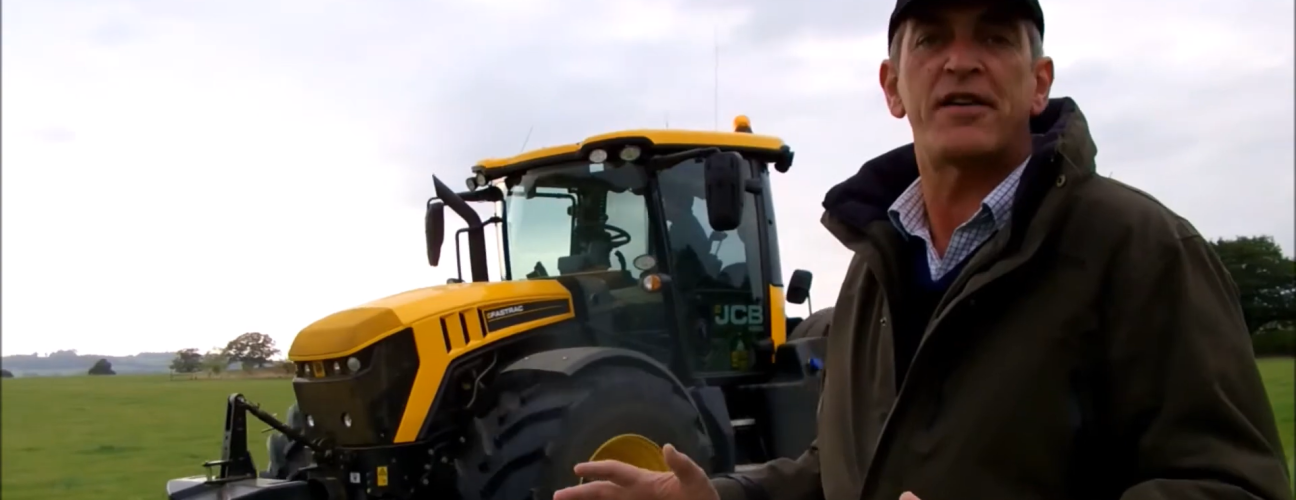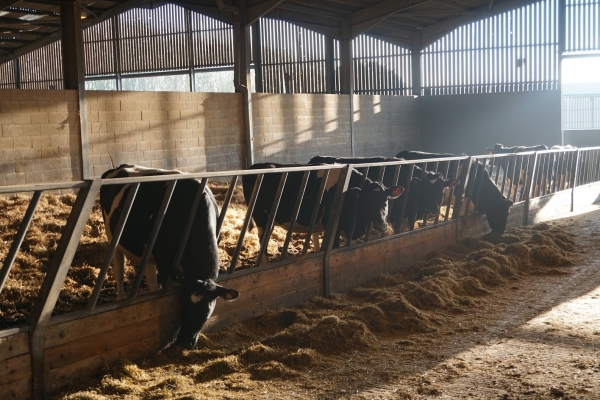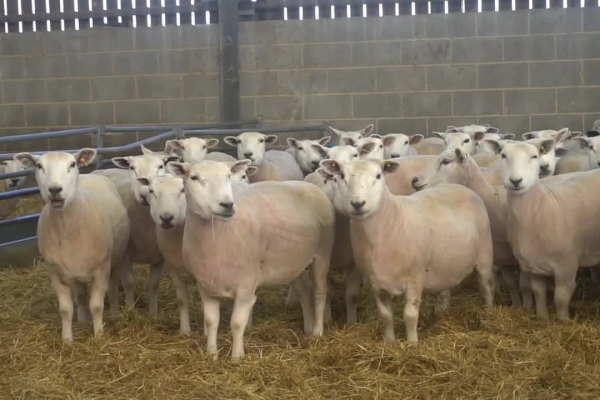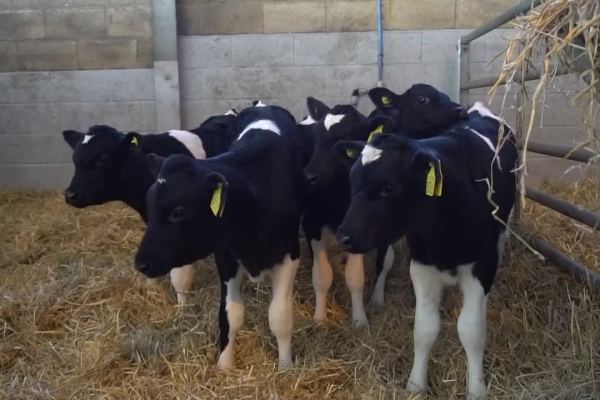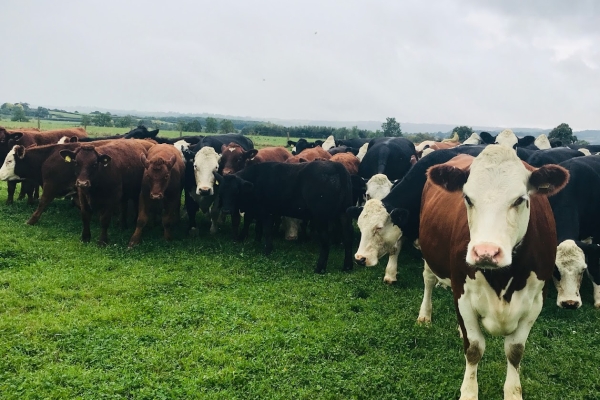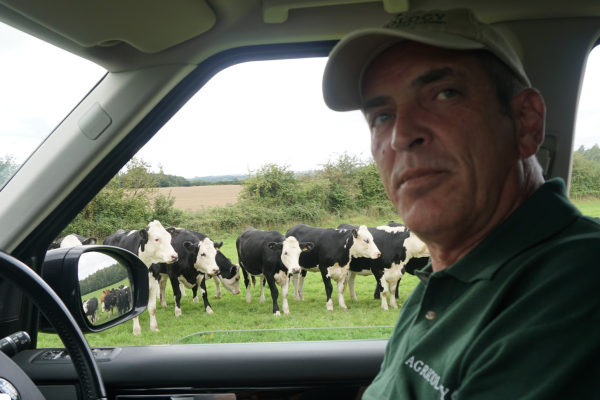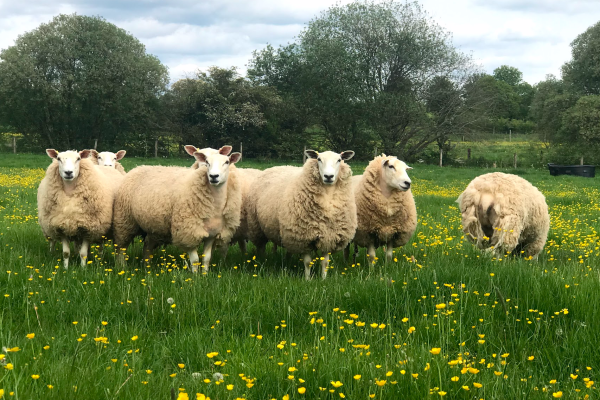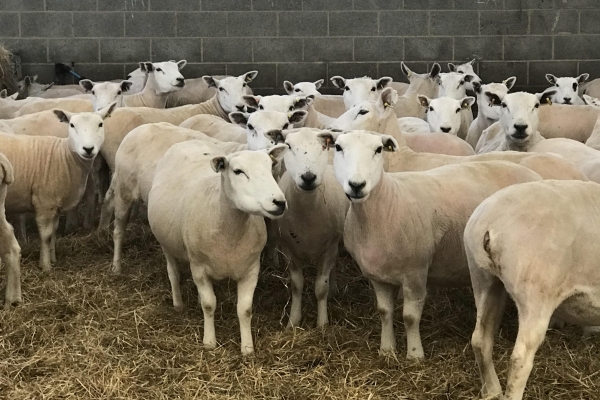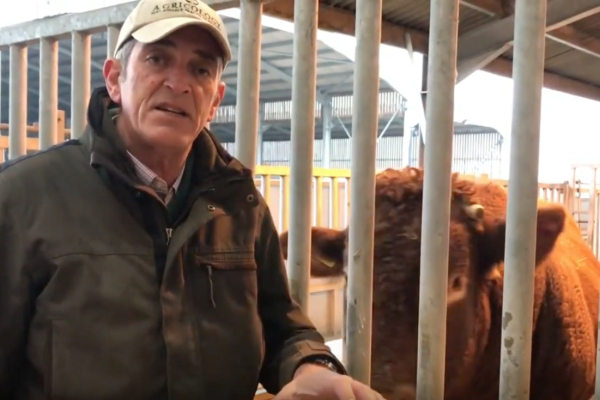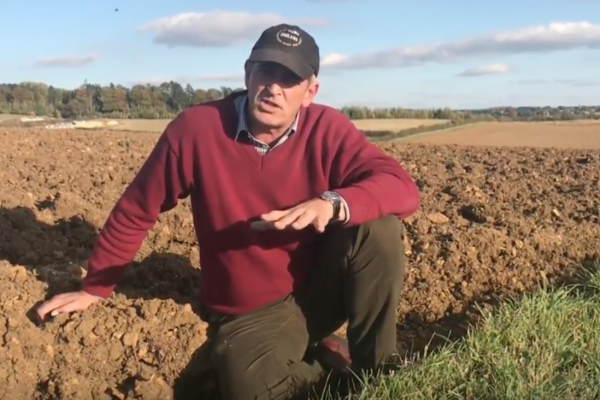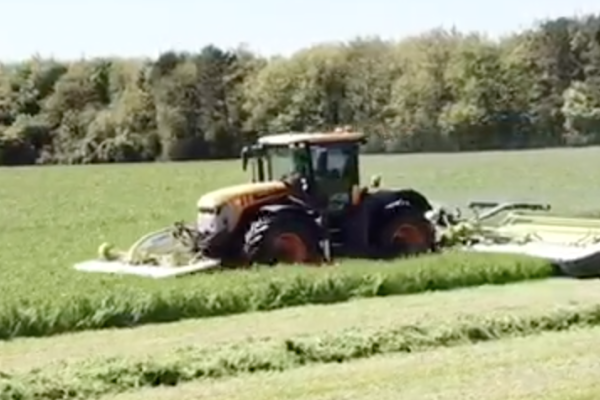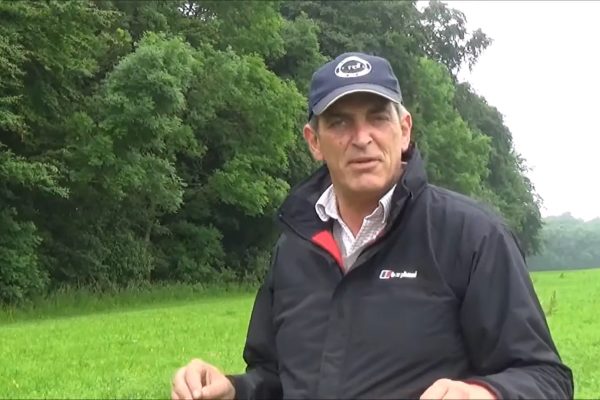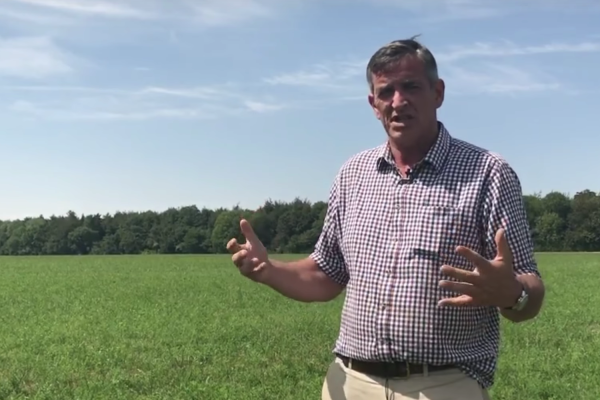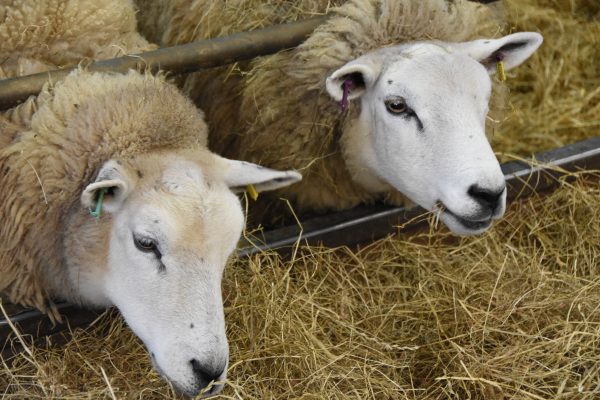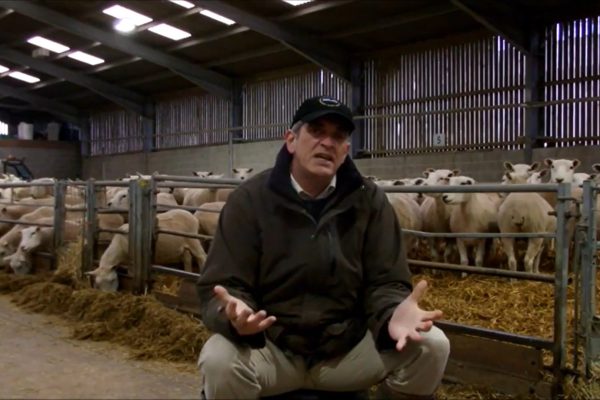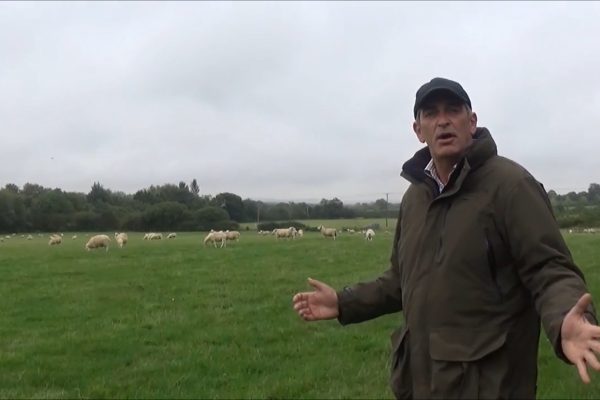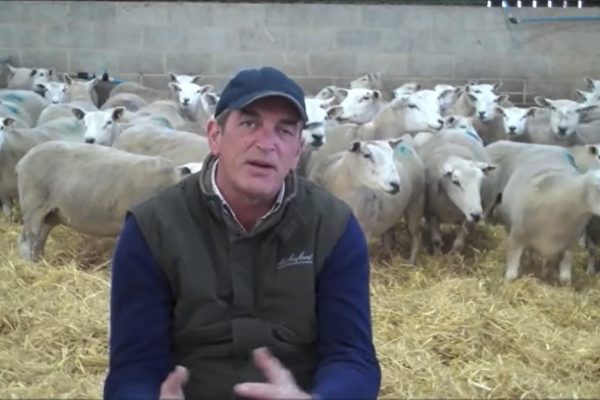Subsoiling, drilling oats and sheep dog training
In our October video blog, Richard discusses subsoiling, drilling oats and training sheep dogs to help you on your farm.
Subsoiling
- Richard starts in a grass field where a subsoiler is at work. He explains that this field is very productive in the summer, holding on to a lot of moisture and producing a lot of grass, but in the winter it becomes too wet to graze livestock on it.
- The video shows a seven-legged tine which reaches 14 inches deep being run through the grass, lifting up the soil and then compressing it back down.
- Richard explains that subsoiling the field in this way will create better drainage, allow air into the soil, assist earthworm movements and help to increase the organic matter in the soil. Although the results of the subsoiling are not seen immediately, an improvement in the production of the soil will be seen next year.
Drilling oats
- Richard moves on to a field that has just been drilled with winter oats following a three year red clover ley – he explains that he is hopeful that the clover will have significantly boosted the soil fertility.
- He suggests that oats, along with triticale, is one of the easiest crops to grow organically. It is a tall, dense plant that blacks out the top soil and suppresses weeds very naturally.
- Richard points out that more conventional farmers will usually have their drilling done by early to mid-September. Drilling at this time does give weeds a chance to establish themselves; they will take nutrients from the cereal so that when spring comes, they will be competing with your crop. Drilling later in October means that the weeds are starting to become dormant and the crop will grow without competition and should be visible within a few days. In the spring, your crop will have a good chance to grow before the weeds, reducing the available light to the soil and inhibiting the growth of the weeds.
Dog training
- In the final section of this month’s vlog Richard explains that he has had interest from people asking how to train working sheep dogs.
- Working with sheep dogs has been a farming tradition for many years and is sustainable approach to managing sheep.
- He suggests that it isn’t difficult to train a dog to do simple tasks on a farm, saying that a good working dog is “worth its weight in gold.” A good working collie, as long as it has the instinct to work, can do basic tasks to help you on the farm. You want a dog that works your sheep for you but doesn’t worry them, stops when you tell them to, and responds to every sheep in the field.
- Over the next few months, Richard will give a bit of tuition about how he trains his dogs. Watch this space!
The information contained above reflects the views of the author/s and does not necessarily reflect that of Agricology and its partners.
Related articles
Richard Smith shares some advice for healthy livestock and provides a demonstration of cattle foot trimming at Daylesford Organic Farm.
In this month's Agricology vlog, Richard Smith talks to us about scanning 1,200 Lleyn sheep at Daylesford Organic Farm with Bob Tofield.
Richard Smith, Farms Manager for Daylesford Organic, explains how they rear their Friesian calves to give them the best start.
Richard Smith of Daylesford Organic Farms talks about grass leys and how they put them into stubble, and undersowing into cereal crops
Richard Smith discusses how he is converting a conventional arable field into a grass and clover ley for livestock and the reasons for doing it.
In this month's Agricology vlog, Richard Smith discusses how he monitors the internal parasites of the sheep to reduce the need for drenching.
Richard Smith, Farms Manager at Daylesford Organic, discusses why good breeding can reduce the need for additional inputs when housing sheep over winter.
Richard Smith discusses strategies for choosing a bull, including analysing estimated breeding value to assess lineage and breeding potential.
Richard Smith discusses ploughing up a red clover ley in preparation to sow a new crop of organic winter oats and vetch at Daylesford
Richard Smith (Farm Manager at Daylesford Organic Farm) gives an update on the nutritional analysis that was carried out on a juvenile sainfoin crop.
Richard Smith talks us through the establishment of his sainfoin crop at Daylesford organic farm, Gloucestershire, in this May video blog.
In this June video blog, Richard Smith discusses Sainfoin, reducing anthelmintic use and the recent Agricology Open Day at Daylesford.
Richard Smith (Farm Manager at Daylesford Organic Farm) discusses everything sainfoin in this August video blog.
In January's Agricology vlog, Richard Smith of Daylesford Farm discusses the forage he uses to feed his flock of commercial Lleyn Sheep.
This month Richard is in the sheep barn talking about the sheep enterprise at Daylesford.
Richard Smith discusses how ewes are prepared for tupping at Daylesford Organic Farm in this video blog.
Watch our March video blog and meet the commercial flock of Lleyn ewes Richard Smith manages at Daylesford Organic Farm.
